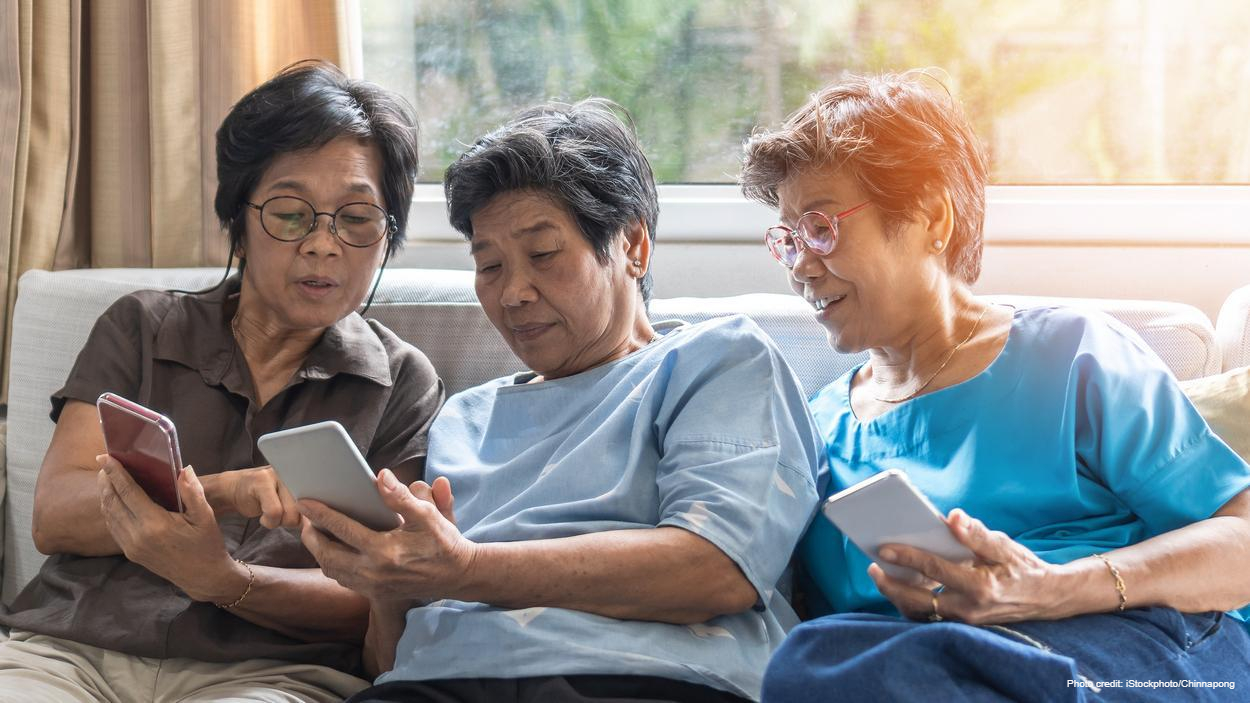
The 2021 report of the Secretary-General entitled “Our Common Agenda” calls for renewing solidarity, which must include a “profound deepening of solidarity between generations.” In the context of progressive population ageing and the gradual extension of human longevity, strengthened solidarity between generations requires a better understanding of how intergenerational solidarity is operationalized at the policy level. The principle of intergenerational equity, which recognizes responsibilities of current generations towards future generations, has deep roots in diverse cultural and religious traditions and is reflected in the Charter of the United Nations
Intergenerational solidarity is central to sustainability. The Political Declaration and the Madrid International Plan of Action on Ageing adopted at the Second World Assembly on Ageing in 2002, recognized that solidarity between generations at all levels – in families, communities and nations – is fundamental for the achievement of a society for all ages. Yet, at the mid-point review of the 2030 Agenda, the Secretary-General’s 2023 report on progress concludes that there has been a “limited focus on a lifecourse and intergenerational approach” across socio-economic systems that could be used to help older persons recover from past deprivations.
With the Madrid International Plan of Action on Ageing and the 2030 Agenda for Sustainable Development as a background, and with a focus on intergenerational solidarity approaches to population ageing and older persons in the Asia and the Pacific region, this Expert Group Meeting, jointly organized by UN DESA and UN ESCAP, will bring together international experts, representatives of member states and relevant stakeholders to explore:
a) The scope of intergenerational solidarity and its link to discussions about future generations;
b) Policy approaches, best practices, challenges and gaps undertaken by Member States in the Asia and Pacific region regarding intergenerational solidarity;
c) The impact of different policy approaches on the human rights of older persons in the region.
By providing concrete, evidence-based recommendations on policies aimed at strengthening solidarity through equity and reciprocity across present and future generations, the joint Expert Group Meeting will serve to position DESA to better support Member States in the context of two policy processes:
a) The implementation of the 2030 Agenda for Sustainable Development
b) The Social, Humanitarian and Cultural Committee of the United Nations General Assembly
Draft Pre-Meeting Discussion Paper
Papers
Intergenerational Solidarity in Asia and the Pacific: An Overview by Bussarawan Puk Teerawichitchainan
Aged care and intergenerational solidarity in Small Island Developing States (SIDS): A case of the Maldives by Aminath Jameel
Intergenerational Reciprocity in Asia Innovation and continuity by Eduardo Klien
Older Persons and Intergenerational Solidarity: Hong Kong’s approach to lifelong learning across generations by Maureen Tam
Strengthening future and present pension: A Cambodian perspective by Narith CHAN
A life course approach to intergenerational solidarity by Rintaro Mori
Current Status and Issues related to Long-Term care in Japan by Ryosuke Fukuda
The gender equality: Pension and care across generations by Shen Ke
The Intergenerational Self-help Club (ISHC) Model in ageing Vietnam by Thuy Tran
Climate Action through intergenerational solidarity in India: GRAVIS approach by Tyagi Prakash
Issues of Intersectionality and intergenerational solidarity by Andrew Byrnes
Generational Economy and Demographic Transition in Asia-Pacific by Wassana Im-em
Living Arrangements and Intergeneraonal Networks of Older Malaysians: An Exploratory Analysis by Tengku Aizan HAMID
Ageing, Intergenerational Equity and Solidarity by Paul Ong
Overview of Policy Approaches To Long-term care, Support services, and Family support In Asia and The Pacific by Thaworn Sakunphanit
Filial Piety Laws in the Asia Pacific Region Expert Group Meeting on Older persons and Intergenerational Solidarity by Karen S. Gomez Dumpit
Presentations
Older Persons and Intergenerational Solidarity by Aidai Kadyrova
Setting the scene by Aliye Mosaad
Aged care and intergenerational solidarity in Small Island Developing States (SIDS): A case of the Maldives by Aminath Jameel
The Power of Intragenerational and Intergenerational Learning by Aminta Permpoonwiwat
Ageing and intergenerational solidarity – setting the stage Issues of intersectionality and intergenerational solidarity by Andrew Byrnes
Strengthening Future and Present Pension: A Cambodian Perspective by Chan_Narith
Some reflections on intergenerational approaches in Asia by Eduardo_Klien
Generational Economy and Demographic Diversity in Asia-Pacific: Evidence from Demographic Dividends by Wassana Im-em
Filial Piety Laws in the Asia Pacific by Karen_Dumpit
Intergenerational employment dynamics and labour market resilience in Asia and the Pacific by Makiko MATSUMOTO
Older Persons and Intergenerational Solidarity by Maureen Tam
Ageing, Intergenerational Equity and Solidarity: Setting the Stage Adjunct Assoc by Paul Ong
The gender equality: Pension and care across generations by SHEN Ke
Actuarial input into improving gender outcomes and strengthening intergenerational solidarity in pension provision by Simon Brimblecombe
Living Arrangements and Intergenerational Networks of Older Malaysians: An Exploratory Analysis by Tengku Aizan HAMID
Overview of Policy Approachesto Long-term Care, Support Services, and Family Support in Asia and the Pacific by Thaworn Sakunphanit
Intergenerational Self help Clubs (ISHCs) in Rapid Ageing Vietnam by Thuy Tran
Climate Action through Intergenerational Solidarity in India: GRAVIS approach by Prakash Tyagi
Higher Education Institutions’ Response to the Learning Needs of Ageing Societies by Mo Wang
Resources
United Nations System Common Principles on Future Generations
 Welcome to the United Nations
Welcome to the United Nations